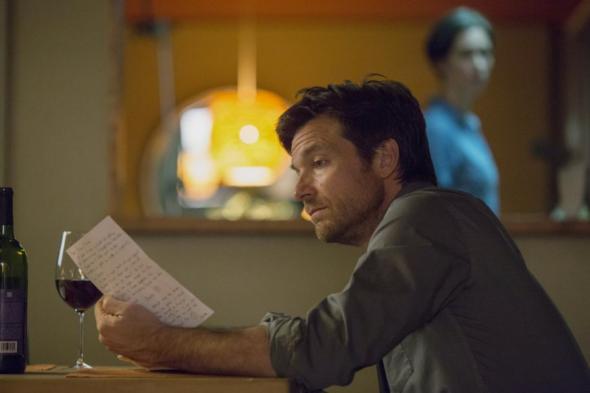Few shows lend themselves to rewatching quite as well as Arrested Development. The four (and possibly more) seasons of Mitch Hurwitz’s inventive sitcom layer more Easter eggs, callbacks, and obscure references into each episode than even the most eagle-eyed viewer can catch the first time through. (In fact, some gags can only be understood on repeat viewings.) But repeat viewings reveal more than in-jokes. One of the great pleasures of revisiting the show comes from Jason Bateman’s performance as Michael Bluth. The most apparently normal member of the Bluths, Michael at first seems to have little in common with his eccentric family. He seems to be the ultimate everyman. But then you look a little closer, and you see that Bateman invests the performance with undertones of selfishness and delusion that make the family connection clear. He preaches the importance of “Family first,” but he’s defined by his desire to flee his family. He’s a caring father, sure, but he’s one who barely listens to his son. He’s not, in other words, quite what he seems to be. In fact, despite first impressions, he might not be a nice guy at all (as the show’s divisive fourth season all but confirmed).
Bateman’s been much praised for his work as a straight man, and he has embraced the designation, telling The Guardian in a 2014 interview, “People say: ‘Why do you want to play the straight man?’ Well it’s because he gets to be in every scene.” But what Bateman excels at is letting the straight-man facade crack. In Juno, for instance, he plays another nice guy who’s ultimately, well, not that nice: He abandons his wife and walks up to the edge of coming onto a teenager. In The Switch, he’s the overlooked best friend who directs his frustration toward one nasty act of deception: He drunkenly substitutes his own sperm for that of the donor chosen by his unobtainable friend (Jennifer Aniston). He’s less convincing playing characters who are assholes from the start, as in his good-not-great directorial debut, Bad Words. The charm gets in the way of outright loutishness. He’s got a warm smile and a friendly face, but some of Bateman’s best moments depend on his ability to convey the seediness beneath the charm.
That’s why The Gift, a tricky new thriller written and directed by Joel Edgerton, who also co-stars, is the ultimate Jason Bateman part. (Some mild spoilers ahead.) Its effectiveness is at least partly dependent on viewers thinking they can see where it’s going, starting with the picture-perfect couple of Simon (Bateman) and Robyn (Rebecca Hall) at its center. Recent transplants from Chicago, the couple has moved to LA for Simon’s new job and into a beautiful mid-century home in the hills. It’s a homecoming of sorts for Simon, who grew up nearby, and he soon runs into an old acquaintance named Gordo (Edgerton). With little encouragement, Gordo begins showing up at the house, leaving gifts, lingering too long after dinner, and behaving oddly enough that Simon feels compelled to ask him to keep his distance from his family.
Anyone who grew up on a diet of Fatal Attraction-inspired thrillers knows what happens next. Except they don’t, since The Gift has a twist it slowly unveils over the course of the film. Or, more accurately, two twists: One involves Simon’s past, which is best left unspoiled. The other involves Simon’s character, who The Gift slowly exposes as rotten to the core. It also doesn’t play by the usual our-new-friend-is-crazy rules. Though Gordo ought to be the showier roll, Edgerton largely cedes the spotlight to his co-star. He smartly underplays his part, letting Gordo’s intentions remain open to debate and staying off-screen for larger chunks of the film. (It’s pretty much the opposite of a vanity project.) For a long stretch, it seemingly forgets it’s a thriller at all, letting Simon and Robyn’s marriage start to crumble thanks to the possibility that Gordo might be threatening them.
The real threat comes from within. The Gift offers early suggestions that Simon might not be what he appears, starting with an early scene in which he drips condescension as he introduces Robyn to his new co-workers. Robyn, the film reveals, is coming off a bad stretch involving a miscarriage and a subsequent period of substance abuse. But more troubles lie ahead, and only some of them come from Gordo. When Gordo references his desire to “let bygones be bygones,” Robyn becomes a detective in her own marriage, uncovering unsavory details from Simon’s adolescence and, in time, evidence that his behavior hasn’t really changed in adulthood. “After high school some people stay exactly the same,” Simon tells her, referring to Gordo’s awkwardness. But he could just as easily be talking about himself.
Bateman plays Simon with the easy charm and everyman approachability familiar from past roles, but what makes the film is his unwillingness to unravel everything that makes his screen presence so appealing. Bateman pushes the charm into smarm and the approachability into sleaze. He’s the best friend who eases the knife into your back, the sociopath who’s learned to pass among the rest of us. That The Gift slowly unveils him as its second villain both supplies it with a clever twist on a familiar genre and gives Bateman the ultimate manifestation of the role he plays best: the creep in nice-guy drag. It’s a part he’s been playing for years, even when it hasn’t been obvious.
